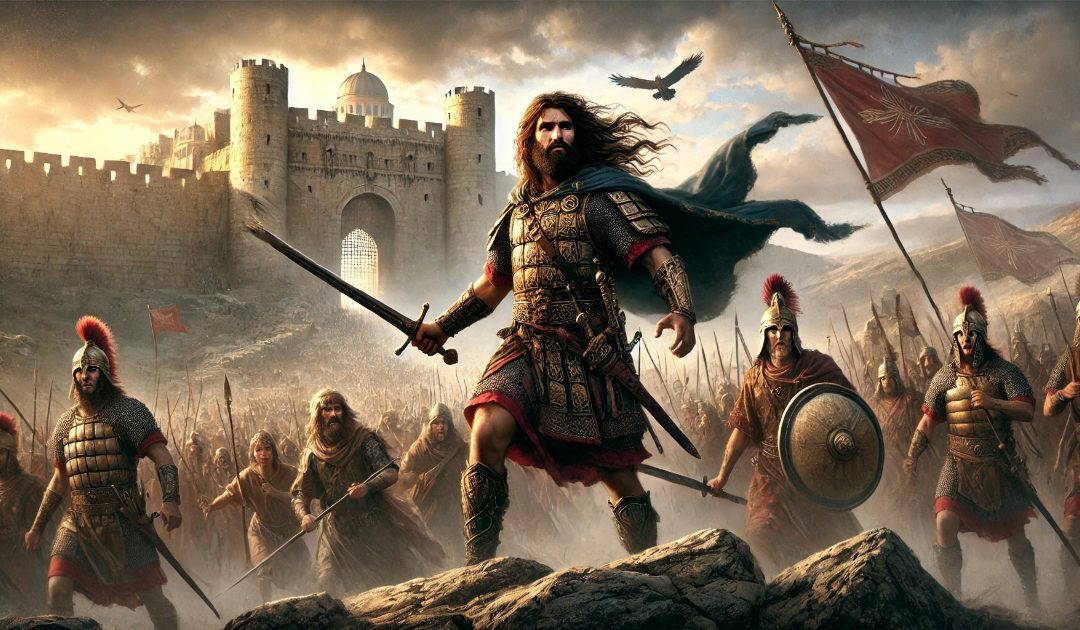The “On This Day” website tells me that on the 21st November 164 BCE, during the Maccabean Revolt, Judas Maccabeus recaptured Jerusalem and rededicated the Second Temple, commemorated since as Jewish festival Hanukkah. Other sources tell me that Hanukkah in 2024 begins on Christmas Day, I presume the date difference is a calendar issue. Anyway, what was the Maccabean Revolt?
The Maccabean Revolt (167–160 BCE) was a Jewish uprising in Judea against the Seleucid Empire, led by a family of Jewish priests known as the Maccabees, or the Hasmoneans. The revolt was sparked by the oppressive rule of Antiochus IV Epiphanes, the Seleucid king who sought to enforce Hellenistic culture and religion upon the Jewish population. This campaign of forced assimilation included the prohibition of Jewish religious practices, such as observing the Sabbath and circumcision, and culminated in the desecration of the Second Temple in Jerusalem, where Antiochus erected an altar to Zeus and demanded sacrifices of pigs, considered unclean in Judaism.
Outrage over these acts of sacrilege reached a tipping point when a Seleucid official tried to force the priest Mattathias to perform a pagan sacrifice. Refusing, Mattathias killed the official and sparked a local rebellion. His five sons, particularly Judah Maccabee (also known as “Judah the Hammer”), took up the leadership after Mattathias’s death. The Maccabees became renowned for their guerrilla warfare tactics, using their knowledge of the local terrain and popular support to outmaneuver the larger, better-equipped Seleucid forces.
Under Judah’s command, the Maccabean forces achieved a series of surprising victories, successfully recapturing Jerusalem and the desecrated Temple in 164 BCE. This event led to the rededication of the Temple, which is commemorated in the Jewish holiday of Hanukkah. The Maccabees cleansed the Temple and rekindled the menorah, a ritual lamp, in a ceremony that became the foundation of the Hanukkah tradition. According to Jewish tradition, though they had only enough consecrated oil to burn for one day, the menorah miraculously stayed alight for eight days, symbolizing divine favor and resilience.
The revolt continued even after the rededication of the Temple, as the Maccabees fought to secure political autonomy from Seleucid control. By 160 BCE, after Judah Maccabee’s death in battle, his brothers continued the struggle, and eventually, Judea won a measure of independence under the Hasmonean dynasty. The Maccabean Revolt is remembered as a significant moment of Jewish resistance and self-determination, with themes of religious freedom and cultural survival. It had a lasting impact on Jewish identity and was later viewed as a precursor to later struggles for independence and autonomy in Jewish history.
In Called to Account, the fourth book of the Sir Anthony Standen Adventures, I have a Jewish physician as a key charachter. He is also central to my current work in progress, so this is useful background.

